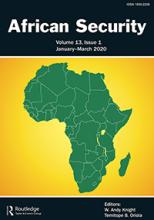Land Library Search
Through our robust search engine, you can search for any item of the over 73,000 highly curated resources in the Land Library.
If you would like to find an overview of what is possible, feel free to peruse the Search Guide.
/ library resources
Showing items 1 through 9 of 514.The paper seeks to establish the role of religion and culture in the realization of women’s rights to property in Nigeria. It begins by affirming that protecting women’s rights to property in Nigeria is a fundamental step towards achieving the 5th Sustainable Development Goal of gender equality.
The recent spate of violence mostly in north-central and southern Nigeria, typically credited to conflicts between herders and farmers, and the reactions, narratives, and representations that have attended them, calls for an examination of core security questions: who or what is to be secured, fr
The recent spate of violence mostly in north-central and southern Nigeria, typically credited to conflicts between herders and farmers, and the reactions, narratives, and representations that have attended them, calls for an examination of core security questions: who or what is to be secured, fr
This working paper looks at the new Land Acquisition Rehabilitation and Resettlement (LARR) Bill, 2011 and explores key issues within the text of the Bill and the larger political context of land acquisition in India.
Access to homestead land, and housing in turn, are basic requirements for human survival. Every citizen needs to have a safe, secure and healthy place to live, work and lead a life of dignity.
This publication is based on a range of past studies on ICCAs conducted in several regions of the world in the last two decades, and, most recently, on 19 country level case studies.
This is a working paper by Kanchi Kohli and Debayan Gupta, Centre for Policy Research,Namati Environmental Justice Program, which throws light on Right to Fair Compensation and Transparency in Land Acquisition, Rehabilitatio
A new United Nations report warns that a third of the planet’s land is now severely degraded thanks to a doubling in the consumption of natural resources over the past 30 years.



